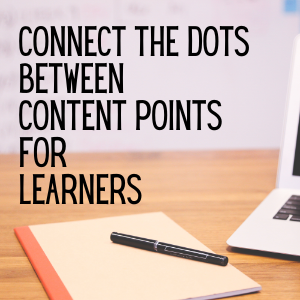How to Go Live: Thinking About Virtual Classroom Facilitation
We all know that organizations have had to quickly move face-to-face training to the virtual classroom. This seismic shift extends beyond...
5 min read
 Karen Vieth
:
May 19, 2025 8:00:00 AM
Karen Vieth
:
May 19, 2025 8:00:00 AM


As a virtual classroom facilitator, your role is essential to creating dynamic, engaging learning experiences. But with AI tools becoming increasingly integrated into training delivery, you might be wondering: “Could AI eventually replace me? Could it deliver training better than I can?” The idea of AI-driven tutors and adaptive systems guiding learners autonomously is unsettling for many.
But the reality is this: AI is not here to replace you—it’s here to enhance your effectiveness. The facilitators who will thrive in the future are those who leverage AI as a co-pilot—amplifying their ability to deliver personalized learning, track engagement, and streamline administrative tasks. In this post, we’ll explore how you can integrate AI into your role to create better learning experiences while maintaining the irreplaceable human touch that makes you an effective facilitator.
Imagine having a teaching assistant who never tires, takes perfect notes, and is always ready with data when you need it. That’s what AI can do for you. In live virtual learning sessions, AI works quietly in the background, handling tasks that often pull you away from engaging directly with learners.
Here are a few ways AI can support your role:
Live transcription and real-time translation also boost session accessibility without any extra effort. Emerging tools like Microsoft Speaker Coach offer real-time prompts to adjust your teaching pace or volume. As AI tools continue to evolve, you may even receive alerts about potential issues like: “Learners seem confused about the last concept.” These insights help you adapt in the moment to keep sessions relevant and effective.
AI doesn’t replace your decision-making power—it boosts your situational awareness so you can better respond to learner needs. The more you embrace this partnership, the more it will elevate your facilitation.
Facilitators often face diverse learners in a single group—some experienced, others new, and some disengaged. Tailoring learning for everyone. in real-time can feel like a juggling act. That's where AI steps in, providing powerful tools to personalize the experience for each learner.
For example, AI-powered tools offer:
Platforms like Disco make this even easier. According to a recent post from Disco, their AI tracks learner progress in real-time and provides data-driven insights that allow facilitators to adjust content and engagement strategies mid-session. Features like automated attendance, personalized feedback, and dynamic content adjustments help you focus on learners—while AI takes care of the logistics.
AI doesn’t replace your expertise or role as a facilitator—it gives you the data to make better, faster decisions. You're still the session leader, fine-tuning the experience on the fly to keep everyone engaged.
Empower Your Virtual Learning Team with AI
Your team can lead the way with AI-powered learning. Equip your designers, facilitators, and producers to deliver engaging experiences. Enroll in our Masterclass to stay ahead!
One of the biggest pain points for facilitators? The never-ending administrative work. From managing sign-ins and launching breakout rooms to documenting discussions and creating follow-up materials—administrative tasks can drain your energy. AI can take this off your plate.
Here’s how AI lightens the load:
By entrusting AI with the administrative overhead, you can focus on what really matters—engaging with your learners and delivering a high-quality experience.
Strengthen Your Programs with Proven Expertise
Your key programs deserve expert guidance. Our team delivers tailored solutions that align with your business goals. See how we can drive results—schedule a consultation now!
While AI excels at handling repetitive tasks, there’s one thing it can never replace: human connection. Facilitators bring empathy, adaptability, and emotional intelligence to the learning experience—skills that AI can’t replicate.
Consider this: During a session, AI might detect a drop in engagement and prompt you to step in. But only you can recognize the subtle cues—the tone of voice, the look on a learner’s face, the body language—that indicate whether someone is confused, disengaged, or simply needs a break.
Human connection is crucial. As AI takes care of logistics, you’ll have more bandwidth to connect with learners on a deeper level. Whether it’s offering encouragement, providing personalized feedback, or just being present, your ability to foster a learning community will always be what sets you apart from any automated system.
Looking to enhance engagement in your hybrid learning sessions? Read our blog, "5 Facilitation Strategies to Elevate Engagement in Hybrid Training," and discover practical strategies to elevate your hybrid learning experiences.
To stay at the top of your game in an AI-supported world, facilitators must evolve. Here’s what you should focus on:
At InSync Training, we help facilitators master the balance between tech tools and human connection through our InQuire Engagement Framework®. This approach ensures facilitators continue to build relationships with learners while using AI to improve learning outcomes.
While AI can assist with many aspects of facilitation, it’s important to remain ethical in its use. Always:
And above all—stay authentic. AI can generate responses or assist with content delivery, but it's your genuine connection with learners that make a lasting impact.
The future of facilitation isn't about being replaced—it's about being augmented. AI can streamline tasks, personalize learning, and track engagement, but it's the human connection that creates meaningful learning experiences.
Confidently Deliver Engaging Learning Experiences
Our expert facilitators drive engagement and ensure flawless delivery. Need certification? We’ll guide you every step of the way. Get started today!
AI isn’t here to take your job—it’s here to make you a better facilitator. The best facilitators of tomorrow will be those who can use AI to elevate their effectiveness while staying true to their unique human qualities. By embracing AI, you’re not just staying relevant—you’re staying ahead.

We all know that organizations have had to quickly move face-to-face training to the virtual classroom. This seismic shift extends beyond...